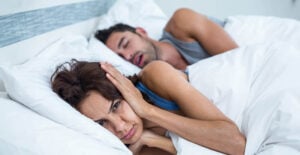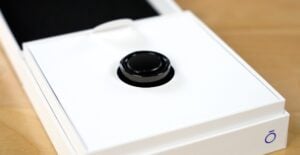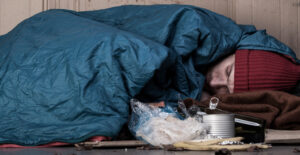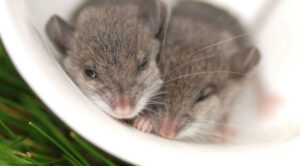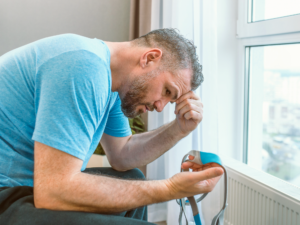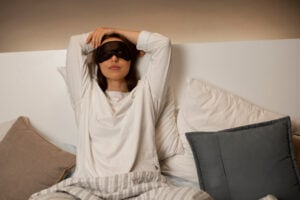People On Plant-Based Diets Sleep Up to 48 More Minutes Per Night
Table of Contents
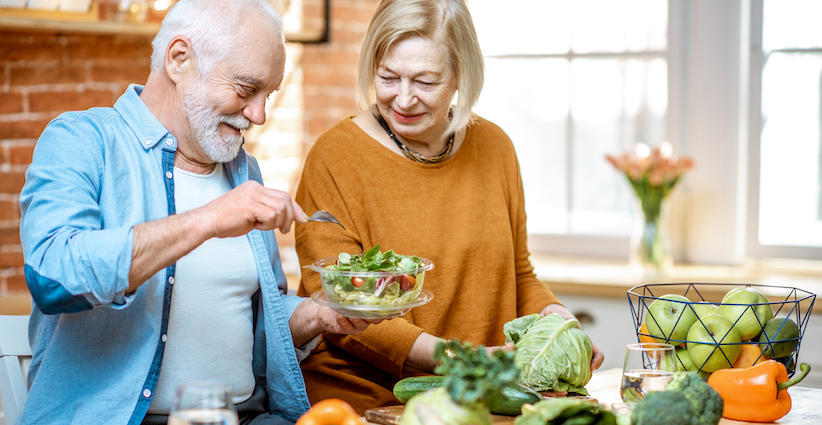
- Vegetarians and vegans sleep 36 minutes more per night than average, with up to 90% reporting good or excellent sleep quality. Those following a raw food diet get even better sleep — 48 more minutes per night of sleep and 97% with above-average sleep quality.
- Folks who follow no particular diet sleep 12 minutes less per night than average, and only 36% rate their sleep quality above average.
- When it comes to snacking, those who choose yogurt sleep better, and those who like sweet treats such as brownies or cookies don’t do so badly — but popcorn snackers routinely get some of the worst sleep.
- Those who often eat foods good for sleep, such as fatty fish, tart cherries, and kiwi, sleep up to 42 minutes more per night than average.
- Insomnia is the top sleep issue reported among survey respondents (41%), affecting almost half of intermittent fasters (48%) and those following gluten-free (47%) and diabetic (47%) diets.
For those struggling to get a solid night’s sleep, what’s on your plate could be the culprit. As they say, “You are what you eat,” and the same goes for your sleep. It’s simple, really: If you eat poorly, your slumber is liable to suffer, too. And vice versa.
Dr. Abhinav Singh, medical director of the Indiana Sleep Center in Greenwood, Indiana, SleepFoundation.org medical-review expert, and author of Sleep to Heal: 7 Simple Steps to Better Sleep, describes it as “a vicious cycle.”
“Good sleep begets more good sleep, and poor sleep begets more poor sleep. And poor sleep leads to poor food choices. That’s why they’re called comfort foods. Because nobody who’s tired and sleep-deprived is going to reach for a salad,” he says.
But… maybe they should? According to a recent SleepFoundation.org survey, vegetarians and vegans sleep 36 minutes more per night than average, with up to 90% of them having above-average sleep quality. Better yet, those following a raw food diet get even more sleep — 48 additional minutes per night of sleep than average, and 97% describe their quality of sleep as above average. By comparison, those who follow no particular nutritional regimen sleep 12 minutes less than average, with only 36% rating their sleep quality as above average.
Katie Hammill, certified nutritional practitioner in Jacksonville, Florida, says that our nutrition and diet correlate “without a doubt” to the quality and quantity of our sleep: “What we eat and when we eat it can drastically impact both how we fall asleep and the quality and duration of our sleep cycles.”
The Food Factor
So, what should (or shouldn’t) we eat to get some quality shut-eye? Overall, folks who aim for healthier snacks tend to sleep better than average. Yogurt snackers get some of the best sleep, averaging 18 more minutes per night than average, and 61% of those experience above-average sleep quality. According to Hammill, these results are not surprising.
“Studies show that there are beneficial gut bacteria that help synthesize vitamins and neurotransmitters needed for sleep like GABA, so eating a gut-loving diet with fermented and prebiotic/probiotic foods like unsweetened yogurt is helpful,” she says.
But those with a sweet tooth who aim for snacks such as cookies, cake, or brownies don’t fare so badly — those surveyed sleep 12 minutes more than average. Nevertheless, Hammill and Dr. Singh agree that processed foods and sugary treats should still be infrequent, especially before bed, to minimize that blood sugar roller coaster.

“Eating processed foods or reaching for that ice cream tub at 10 p.m. can spike your blood sugar, which activates your kidneys,” Dr. Singh explains. “Then your sleep quality is poor because there are these micro awakenings and even bathroom breaks at night, which can then start to fuel some insomnia habits.”
Hammill suggests aiming for foods rich in protein, fiber, magnesium, and potassium for improved sleep quality. “Ideally, we should try to cut off eating two or three hours before sleep. This allows our body to digest and our blood sugar to stabilize for better sleep. If you find you are hungry before bed, and it is impacting your ability to fall asleep, then a small spoonful of nut butter or half a banana could help.”
Certain foods can help promote good sleep, and the more often we eat them, the better we may sleep. Survey respondents who eat fatty fish 4-6 times per week average 42 more minutes of sleep a night. And those who eat fruits such as tart cherries and kiwi as often sleep 30 more minutes and 24 more minutes per night, respectively.
Just whatever you do, don’t grab the Orville Redenbacher — popcorn snackers in our survey sleep 12 minutes less per night than average and only 35% describe their sleep quality as good or excellent.
When Dreams Aren’t So Sweet
Meredith Conklin, a 44-year-old court operations manager in Kansas City, Missouri, has long struggled with insomnia. But it wasn’t until getting sober that she truly realized the role that diet played in her (lack of) sleep quality and quantity.
“It would’ve been impossible to look at nutrition as a potential culprit in my sleep problems had I not eliminated alcohol and drugs from my life,” she shares. “That’s when it got easier to identify a direct correlation between my problems with sleep, and the type of food I consumed the previous day.”
Conklin notes that foods with high sugar content and large portions and “heavy” foods consumed less than two hours before bed would exacerbate her nighttime awakenings.
“This was confusing at times because as an emotional eater, foods that are high in volume, carbs, and sugar would often provide a numbing effect that I sought as a relaxation technique,” she shares. “However, the outcome would consistently be lack of sleep.”
Insomnia is the top sleep issue for our survey respondents, with 41% reporting they regularly have trouble falling or staying asleep. Almost half of the intermittent fasters (48%) and those following a diabetic diet (47%) or gluten-free diet (47%) experience insomnia on a regular basis.
Studies show that getting less sleep can increase daily caloric intake, and over time, this can start to add up.
“People who sleep less can overeat by 200 or 300 calories the next day. You multiply that by six months or a year every day, and that can lead to being overweight, which can precipitate some sleep disorders,” Dr. Singh says. “Weight gain can be a risk factor for snoring and sleep apnea.”
Hammill echoes this sentiment, stressing that our bodies need energy, which can be obtained through sleep or food: “If we deprive it of one, we will crave the other. I recommend to my clients who have the occasional poor night of sleep or jet lag to start their day with a hearty protein-rich breakfast like a veggie omelet to help minimize those cravings. Maintaining a healthy diet and body weight can go a long way to help alleviate some of these sleep challenges.”
Recent research also highlights the link between what we eat and sleep disorders. For instance, a new study found that people on plant-based diets have a 17% lower risk of developing sleep apnea than those who eat mainly animal-based foods. And people who eat healthy plant foods like fruits, vegetables, whole grains, and nuts had a lower risk of sleep apnea than people who ate unhealthy plant-based foods, including refined grains, sweets, and salty foods like chips.
By changing her diet, Conklin seems to have broken the insomnia cycle. She knows what foods result in better sleep for her, and on days she treats herself, she knows her sleep might suffer.
“In the months of January and February this year, I made a nearly complete change to plant-based protein and avoided most egg and dairy products, as well,” she says. “This demonstrated a notable improvement in sleep, fitness, mood — basically all facets of my well-being. It was rather stunning, to be honest.”
Methodology
The survey commissioned by SleepFoundation.org was conducted on the online survey platform Pollfish in February 2024. Results are from 1,000 survey participants in the United States who were ages 18 and older at the time of the survey. All respondents attested to answering the survey questions truthfully and accurately.
Got a hot tip? Pitch us your story idea, share your expertise with SleepFoundation.org, or let us know about your sleep experiences right here.
References
7 Sources
-
Hepsomali, P., Groeger, J. A., Nishihira, J., & Scholey, A. (2020). Effects of oral gamma-aminobutyric acid (GABA) administration on stress and sleep in humans: A systematic review. Frontiers in Neuroscience, 14, 923.
https://pubmed.ncbi.nlm.nih.gov/33041752/ -
Zhang, Y., Chen, C., Lu, L., Knutson, K. L., Carnethon, M. R., Fly, A. D., Luo, J., Haas, D. M., Shikany, J. M., & Kahe, K. (2022). Association of magnesium intake with sleep duration and sleep quality: findings from the CARDIA study. Sleep, 45(4), zsab276.
https://academic.oup.com/sleep/article/45/4/zsab276/6432454 -
Pattnaik, H., Mir, M., Boike, S., Kashyap, R., Khan, S. A., & Surani, S. (2022). Nutritional Elements in Sleep. Cureus, 14(12), e32803.
https://www.cureus.com/articles/128261-nutritional-elements-in-sleep#!/ -
Gratwicke, M., Miles, K. H., Pyne, D. B., Pumpa, K. L., & Clark, B. (2021). Nutritional Interventions to Improve Sleep in Team-Sport Athletes: A Narrative Review. Nutrients, 13(5), 1586.
https://www.mdpi.com/2072-6643/13/5/1586 -
Calvin, A. D., Carter, R. E., Adachi, T., Macedo, P. G., Albuquerque, F. N., van der Walt, C., Bukartyk, J., Davison, D. E., Levine, J. A., & Somers, V. K. (2013). Effects of experimental sleep restriction on caloric intake and activity energy expenditure. Chest, 144(1), 79–86.
https://pubmed.ncbi.nlm.nih.gov/23392199/ -
Melaku, Y. A., Zhao, L., Adams, R., Eckert, D. J. (2024). Plant-based and vegetarian diets are associated with reduced obstructive sleep apnea risk. ERJ Open Research.
https://openres.ersjournals.com/content/early/2024/01/04/23120541.00739-2023 -
Wirth, J., Lin, K., Brennan, L., Wu, K., & Giovannucci, E. (2024). Protein intake and its association with sleep quality: results from 3 prospective cohort studies. European journal of clinical nutrition, 10.1038/s41430-024-01414-y. Advance online publication.
https://www.nature.com/articles/s41430-024-01414-y









